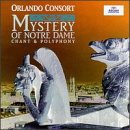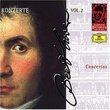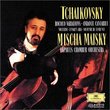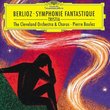| All Artists: Orlando Consort Title: Mystery of Notre Dame Chant & Polyphony Members Wishing: 1 Total Copies: 0 Label: Archiv Release Date: 11/25/1997 Genres: Pop, Classical Styles: Vocal Pop, Opera & Classical Vocal, Historical Periods, Early Music Number of Discs: 1 SwapaCD Credits: 1 UPC: 028945348728 |
Search - Orlando Consort :: Mystery of Notre Dame Chant & Polyphony
 | Orlando Consort Mystery of Notre Dame Chant & Polyphony Genres: Pop, Classical
|
Larger Image |
CD DetailsSimilar CDs |
CD ReviewsNo, This is Not Another Da Vinci Code! Giordano Bruno | Wherever I am, I am. | 02/25/2009 (5 out of 5 stars) "The music associated with the Cathedral of Notre Dame in Paris consists chiefly of "troped" plainchant, that is, of liturgical chant with counter-harmonizations according to rather strict rules, plus a small number of three-and four-part measured polyphonies. The two cathedral magisters associated with this repertoire are Leoninus and Perotinus, about whom very little is known. Much of the repertoire has survived in an English manuscript. Musicologists are fond of declaring that Leonin/Perotin were the founding fathers of everything since, the musical equivalent to the 'Out of Africa' DNA Eve. It's certain enough that the musical scribes of Notre Dame played a significant role in developing metric notation as a 'trope' on non-mensural chant notation.
There are a dozen or so CDs available of this tiny repertoire, notably by the Hilliard Ensemble, Ensemble Organum, David Munrow, The Theater of Voices, Tonus Peregrinus, Ensemble Gilles Binchois, and this performance by the Orlando Consort, which has also been released under the title The School of Notre Dame. I have no secret knowledge of this music; neither does anyone else. We can't even guess what kind of vocal timbre was preferred, what tempi were normal, what the standard of pitch might have been, what usage of vocal ornamentation was acceptable, or even what levels of mastery and training prevailed. Ensemble Organum favors a rough, nasal vocal quality with copious use of quavers and grace-notes. The Orlando Consort has taken the opposite stance, singing with meticulous suavity, rhythmic precision, and their usual lovely blend of beautiful timbres... a performance intended to meet modern canons of taste, in short. Especially on those 'organa' that depend on perfect pitch relationships - Pythagorean tunings - I find that I enjoy the Orlando approach more than any other." |

 Track Listings (11) - Disc #1
Track Listings (11) - Disc #1



